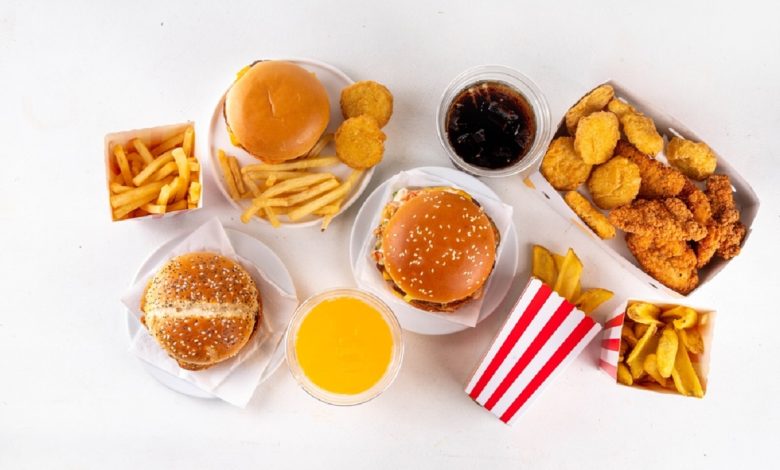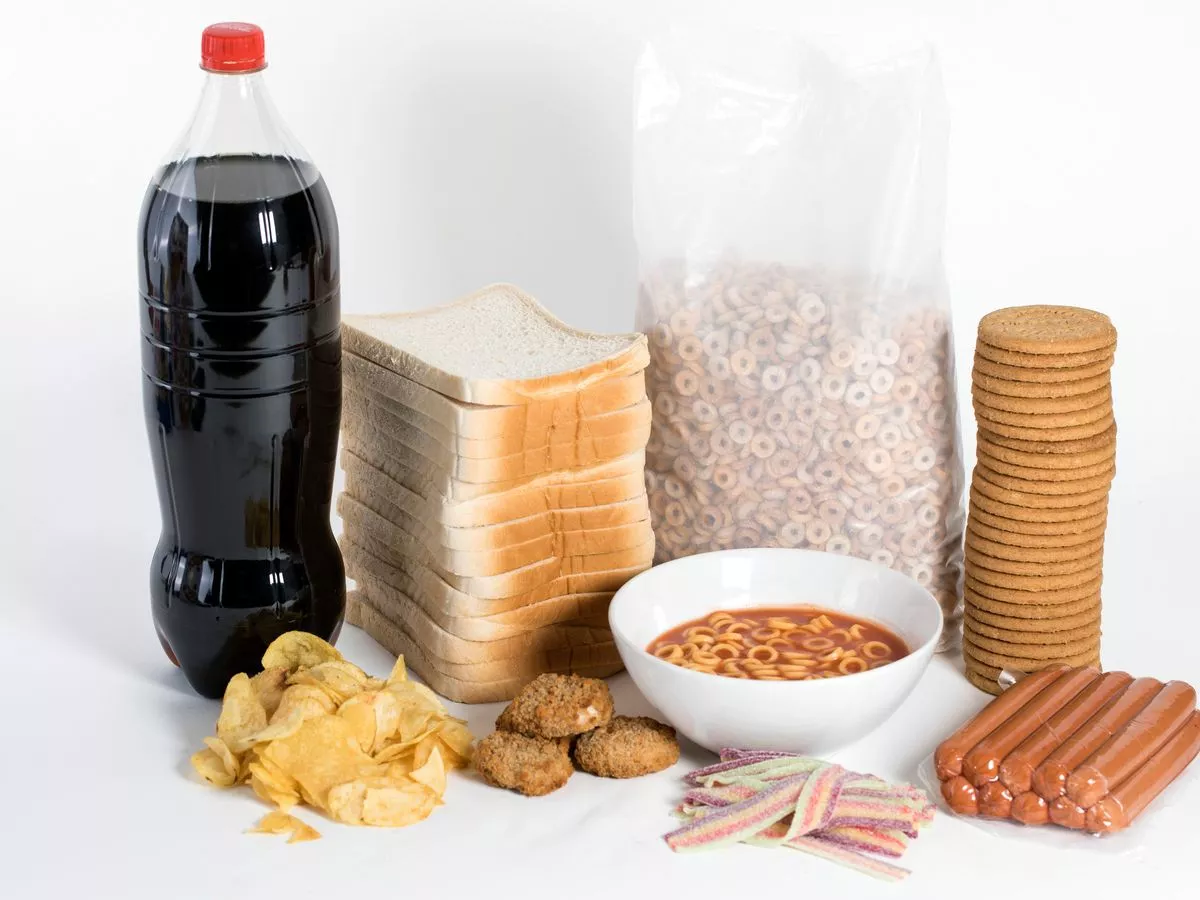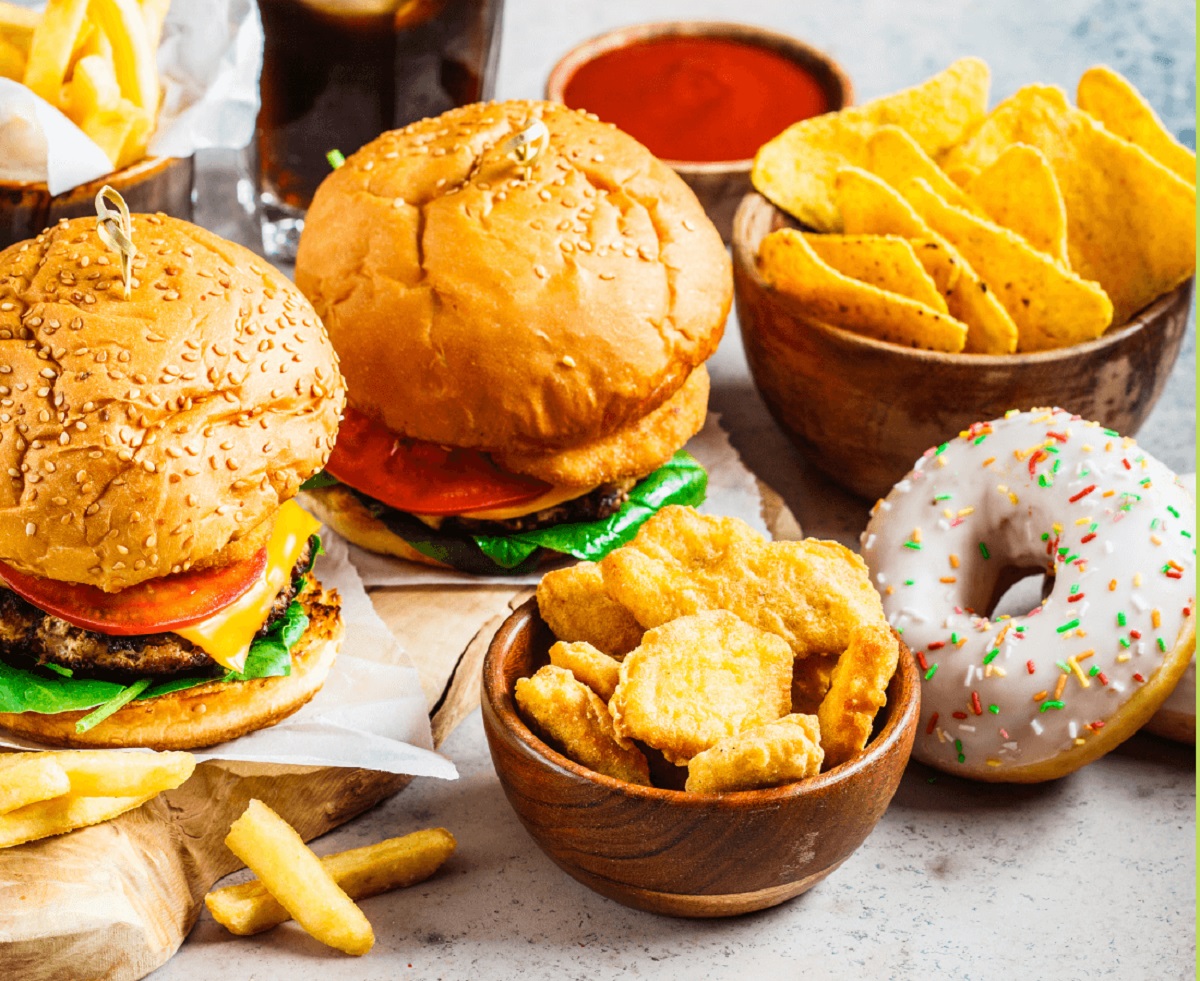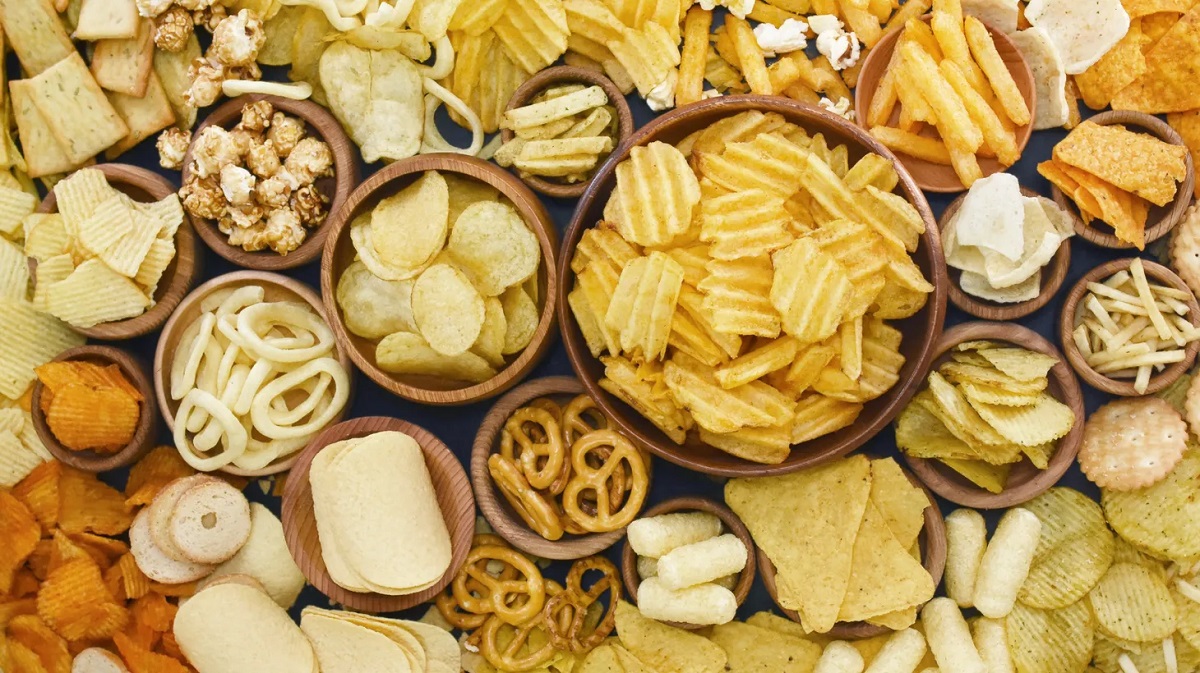Ultra-Processed Food Lead To Obesity Regardless Of Exercise Habits

Ultra-Processed Food: The prevalence of obesity is a growing global health concern, with diet playing a significant role.
Among dietary components, ultra-processed foods (UPFs) have gained attention for their contribution to weight gain and related health issues.
Ultra-Processed Food, Research indicates that regardless of exercise habits, the consumption of UPFs is a significant factor in obesity. This essay explores the mechanisms through which UPFs contribute to obesity, why exercise cannot fully mitigate their effects, and how to make healthier dietary choices.
What Are Ultra-Processed Foods?

Ultra-Processed Food, Ultra-processed foods are industrial formulations made predominantly from substances extracted or synthesized from foods, such as sugars, fats, preservatives, and additives. These foods include sugary beverages, packaged snacks, fast food, and ready-to-eat meals. They are typically energy-dense, high in sugar, unhealthy fats, and salt, and low in essential nutrients and fiber.
Mechanisms Linking UPFs To Obesity
High Caloric Density And Low Satiety
UPFs are designed to be hyper-palatable, meaning they trigger reward systems in the brain, encouraging overconsumption. Their low fiber and protein content lead to reduced satiety, causing individuals to eat more calories than needed.
Disruption Of Appetite Regulation
Ultra-Processed Food, Additives and emulsifiers in UPFs can interfere with the gut-brain axis, the communication network between the gastrointestinal tract and the brain. This disruption impairs hunger regulation, leading to overeating.
Alteration Of Gut Microbiota
Studies have shown that the artificial ingredients in UPFs can negatively affect gut microbiota. A less diverse gut microbiome has been linked to obesity and metabolic diseases.
Increased Insulin Resistance
Ultra-Processed Food, The rapid digestion of refined carbohydrates in UPFs spikes blood sugar levels, causing the pancreas to overproduce insulin. Over time, this can lead to insulin resistance, a key factor in weight gain and obesity.
Why Exercise Alone Is Not Enough

Caloric Imbalance
While exercise burns calories, it is difficult to offset the high caloric intake from UPFs. For example, consuming a single fast-food meal can contain over 1,200 calories, which would require hours of intense physical activity to burn.
Hormonal Impact
Ultra-Processed Food, UPFs can alter hormone levels, such as increasing cortisol and decreasing leptin sensitivity. These hormonal changes can promote fat storage, regardless of physical activity levels.
Inflammation And Fat Accumulation
Chronic inflammation caused by the artificial components in UPFs hampers muscle recovery and metabolic efficiency, making it harder to achieve the benefits of exercise.
Evidence From Studies

The NOVA Classification And Obesity Risks
Ultra-Processed Food, A study published in Cell Metabolism found that participants who consumed UPFs ate 500 calories more daily compared to those on unprocessed diets. This overconsumption occurred even when both groups were allowed to exercise freely.
Longitudinal Observations
The NutriNet-Santé study, which tracked thousands of individuals, reported a strong correlation between UPF consumption and weight gain over time, irrespective of participants’ physical activity levels.
Controlled Trials
Ultra-Processed Food, In a randomized controlled trial by the National Institutes of Health, participants consuming UPFs gained more weight compared to those eating minimally processed foods, even though calorie and macronutrient intake were matched.
Combating The Effects Of UPFs
Adopting Whole Foods
Replacing UPFs with whole, minimally processed foods such as fruits, vegetables, lean proteins, and whole grains can significantly reduce caloric intake and improve overall health.
Mindful Eating
Ultra-Processed Food, Being aware of portion sizes and eating slowly can help regulate hunger signals and prevent overeating.
Policy And Education
Governments and organizations can play a role in limiting the marketing of UPFs, especially to children, and promoting nutritional education to encourage healthier food choices.
Conclusion
Ultra-Processed Food, While exercise is undeniably important for overall health, it cannot fully counteract the adverse effects of ultra-processed foods on body weight. UPFs disrupt hormonal balance, appetite regulation, and gut health, leading to increased calorie consumption and fat storage.
Ultra-Processed Food, To effectively combat obesity, individuals must prioritize dietary quality and reduce the intake of UPFs, alongside maintaining an active lifestyle. By making conscious food choices, we can take a significant step toward a healthier future.
Also Read:
Obesity And Vaccine Efficacy: Obesity Can Reduce The Effectiveness Of The Vaccine
How Ultra-Processed Foods Contribute To The Development Of Arthritis
Does Dark Chocolate Increase The Risk Of Type 2 Diabetes? Exploring The Truth




